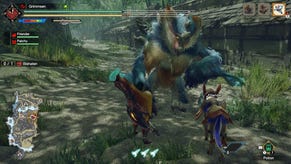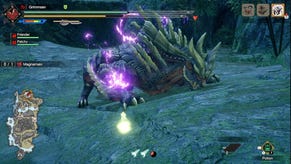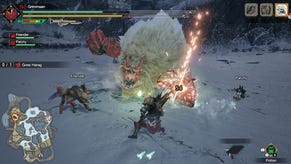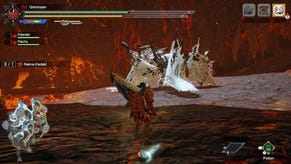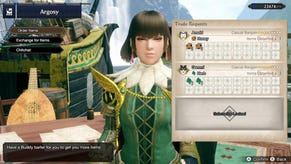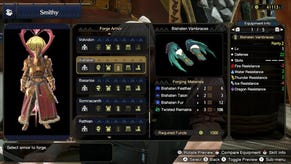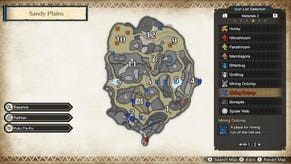Monster Hunter: Still No Substitute for the Real Thing
Imitators are popping up everywhere, but Monster Hunter stands apart in its desire to make you proud to become a better player.
This article first appeared on USgamer, a partner publication of VG247. Some content, such as this article, has been migrated to VG247 for posterity after USgamer's closure - but it has not been edited or further vetted by the VG247 team.
Did you see gaming's biggest new trend in action at E3 this year? Or at Gamescom? Or Tokyo Game Show? It was all over the place, in every major press conference's trailers and demos. Almost every big publisher is taking their stab at it. It's ubiquitous. It's unanimous.
Everybody wants to be Monster Hunter.
Capcom's Monster Hunter series continues to be just about the biggest thing going in Japan's ailing games market. Monster Hunter helped propel PlayStation Portable to huge success; the series' defection to 3DS, in turn, helped Nintendo turn the fortunes of that particular handheld around. Capcom is still struggling to make Monster Hunter similarly huge in the West, though, and the vacuum that absence has created has left quite an opportunity for other studios. Everyone has their own take on Monster Hunter, each hoping their own variant formula will be the one to crack the resistant American market.
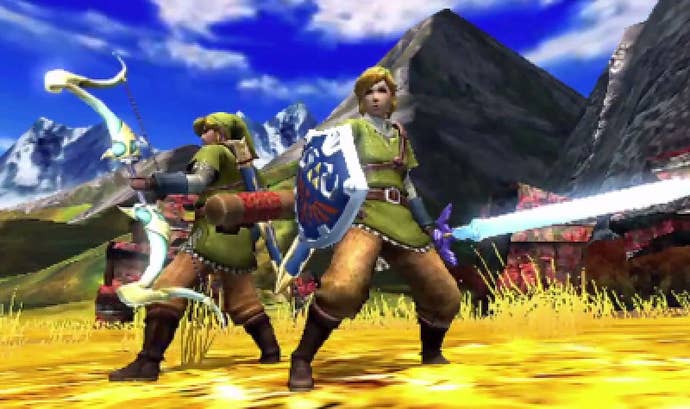
There's Sony's Freedom Wars, which takes a grim futuristic view on the topic; Turtle Rock and 2K's Evolve, in which players get to be the monster, too; Dragon Age: Inquisition, which sees Our Heroes doing Dragon Age-y type things but also battling massive monsters in multiplayer style; and even The Witcher III, which probably skews a little closer to Dragon's Dogma, being single-player and all, but still carries forward the same spirit. And that's to say nothing of all the Japan-only titles that were on display at TGS: Gods Eater 2, Phantasy Star 0, Final Fantasy Explorers... and the list goes on and on.
Despite this, Monster Hunter 4 Ultimate producer Ryozo Tsujimoto seems unfazed. Philosophical, even. It probably helps that the series' upcoming 3DS-exclusive entry has all kinds of exclusive bonus crossover content, from Mega Man to Sonic the Hedgehog to Metroid. But mostly, Tsujimoto appears confident in the inherent quality of the Monster Hunter series.
"To put it simply," he says, "Monster Hunter will continue to be unique by being Monster Hunter."
He elaborates: "I get asked this a lot — 'There are a lot of similar games, what will you do?' Our philosophy is that when we set out to make a Monster Hunter game, we're trying to make a Monster Hunter game. We're not trying to make something else. We look at the previous games in the series and ask how we can improve on those. We don't look to see what's around us or try to imitate what other people are making. I think that's what's kept us grounded, kept us making these high-quality titles."
Having been with the franchise since its beginning — Tsujimoto coded the online structure for the original PlayStation 2 Monster Hunter, back when taking consoles online was a wild frontier — he has a unique perspective on the series' evolution.
"It's always been a multiplayer action game at its core," he says, "and the way these actions are performed definitely makes the the underdog against these monsters. Everything that's changed about it, everything that's improved, has been driven by this interaction between the hunters and the monsters and what kind of strategies and actions you can perform.
"As a specific example, when we got to Monster Hunter tri, it was the first time we had a stamina system for the monsters themselves. They could get tired — before that, they just had their standard state. They could get mad, things like that, but they wouldn't get tired the way hunters do. Changes like that don't change the nature of the interactions between hunters and monsters. What we're doing is adding another layer on top of the existing design, creating more choices. Does the player need to deplete a monster's stamina as opposed to their health to get them tired so they can set a trap. Or do you set a trap first and just concentrate on knocking down their health as opposed to their stamina?
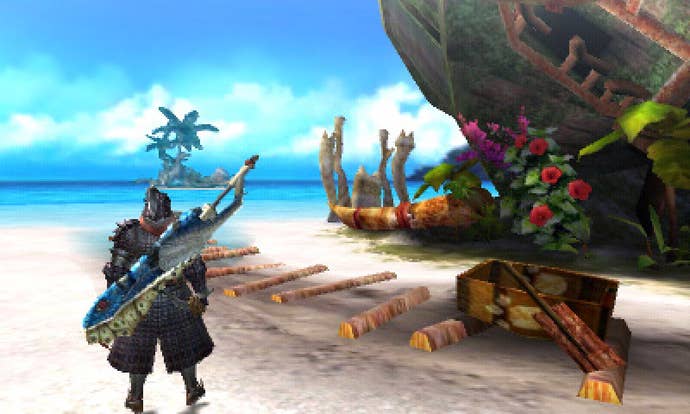
"With all these things, you're adding layers to the game, but you're adding freedom as well. You're never changing the core concept of the monster vs. the hunters — that's been a driving force behind the whole series."
Even as other studios attempt to recreate the Monster Hunter experience in more accessible forms — as first-person shooters or breezy action RPGs — Tsujimoto rejects the idea that his creation is too complex. On the contrary, he says, complexity is key to the experience.
"Monster Hunter has been complex from the very beginning!" he exclaims. "I think the original used all the buttons on the PS2 controller, which was not that common then and still isn't all that common now. So out of the gate, it was complicated. The focus of the action is anything that allows players to do more, to have more freedom... that's what we're about. We're not going to cut any corners or draw any boundaries. If that makes it complicated, that's fine. Anything that empowers players and gives them more things to do is great in our book."
The trick to Monster Hunter, of course, is that you're not meant to go it alone... especially at the outset. Tsujimoto acknowledges the fact that, by and large, his games aren't particularly friendly to newcomers. Instead, he says, acolytes should look to the community for help.
"Another great thing about Monster Hunter, too, is that because it's a multiplayer action game and it doesn't exist in a vacuum on its own, it has the ability to be complex. There's a built-in learning system in the game where you watch others play, ask them, talk about it. I mean, it has fairly complex controls, a ton of weapons — and in fact, changing the weapon type changes the controls! It can be daunting, but the good news is, there's this whole community that's built up and is built-in. They can help newcomers learn the ropes."
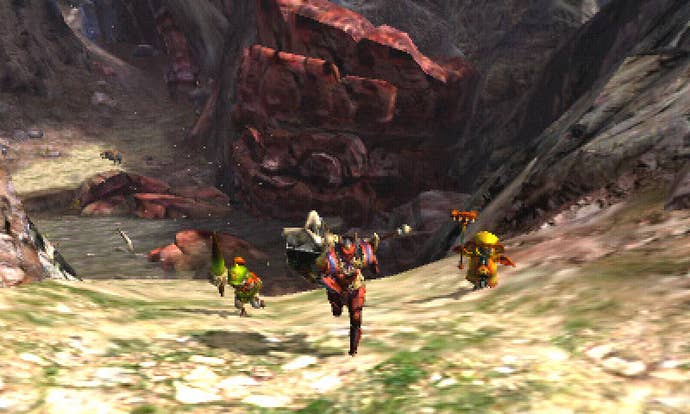
Ultimately, Tsujimoto is happy to allow the Monster Hunter games to wallow in complexity to create a better play experience. The series, he says, is less about instant gratification than the satisfaction of hard-fought victory after conquering a difficult learning curve.
"The appeal of action games, at their core, is that feeling of accomplishment you get when you do something difficult. I wouldn't want to rob players of that feeling! That complexity is important. If we skewed too simple, on the other side of the spectrum, and anybody could defeat any monster, no problem... you'd really lose something. That sense of accomplishment, of having done something that you have to try hard to do. The sense that you've learned something and gotten better at it."
Of course, that communal spirit is much easier for Capcom to lean on in its home territory. Japan is a smaller country with only a few major urban centers, and it's no major trouble for Japanese fans to travel to fan events. That's not so much the case in America; Capcom hosts fan frequent events at its Bay Area headquarters, but while that's helpful for anyone living near San Francisco or San Jose, it doesn't do much good for someone in, say, Austin or Miami.
"That's something we've thought about a lot," Tsujimoto admits. Unfortunately, there's no solid plan in place to make converts of U.S.-based game players. So the door remains open for the likes of Evolve or Freedom Wars to win the hearts and minds Capcom still struggles to capture.

